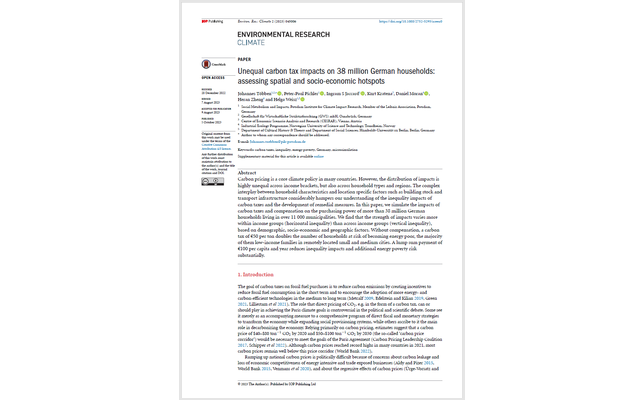Unequal carbon tax impacts on 38 million German households: assessing spatial and socio-economic hotspots.
Többen, J., Pichler, P.-P., Jaccard, I. S., Kratena, K., Moran, D. D., Zheng, H. & Weisz, H. (2023): Unequal carbon tax impacts on 38 million German households: assessing spatial and socio-economic hotspots. Environ. Res.: Climate 2 045006, DOI: 10.1088/2752-5295/aceea0.Abstract
Carbon pricing is a core climate policy in many countries. However, the distribution of impacts is highly unequal across income brackets, but also across household types and regions. The complex interplay between household characteristics and location specific factors such as building stock and transport infrastructure considerably hampers our understanding of the inequality impacts of carbon taxes and the development of remedial measures. In this paper, we simulate the impacts of carbon taxes and compensation on the purchasing power of more than 38 million German households living in over 11 000 municipalities. We find that the strength of impacts varies more within income groups (horizontal inequality) than across income groups (vertical inequality), based on demographic, socio-economic and geographic factors. Without compensation, a carbon tax of €50 per ton doubles the number of households at risk of becoming energy poor, the majority of them low-income families in remotely located small and medium cities. A lump sum payment of €100 per capita and year reduces inequality impacts and additional energy poverty risk substantially.
Keywords
carbon taxes, inequality, energy poverty, Germany, microsimulation

